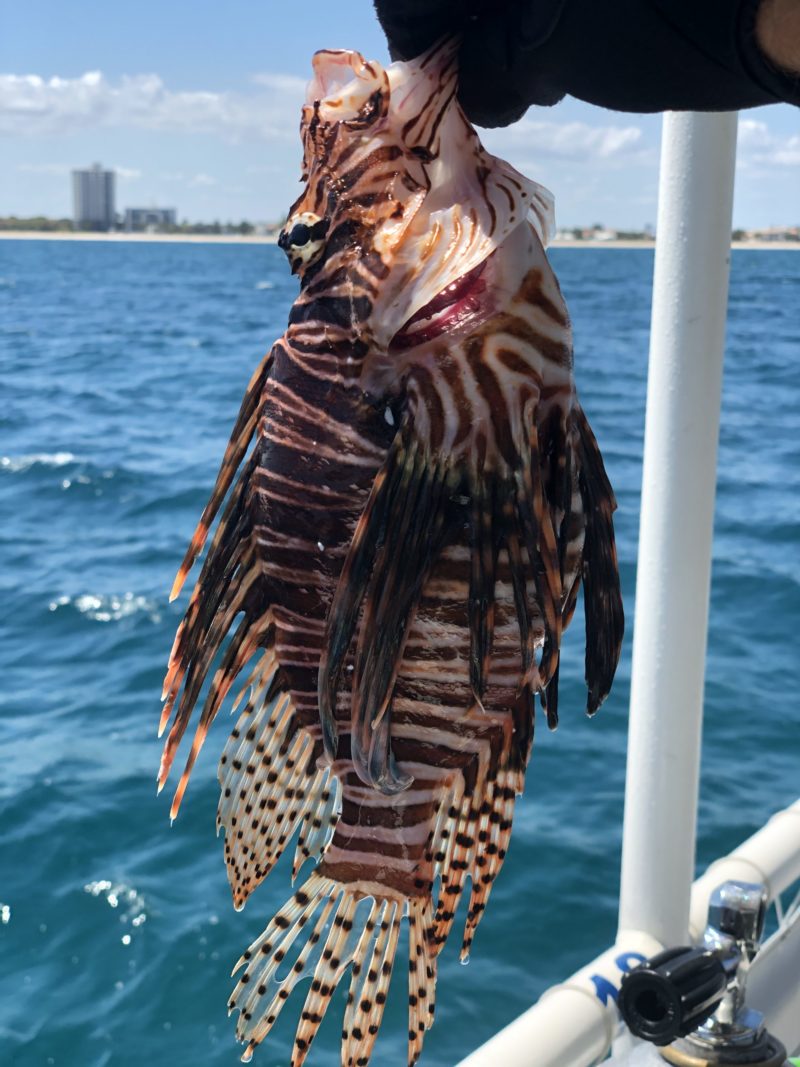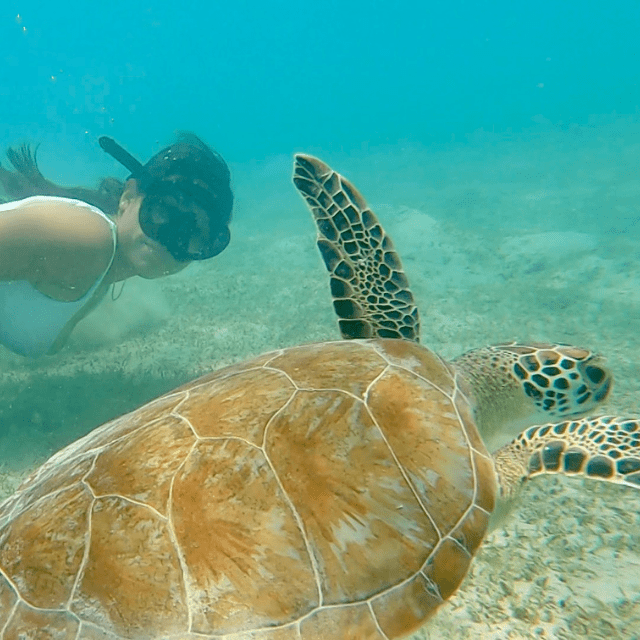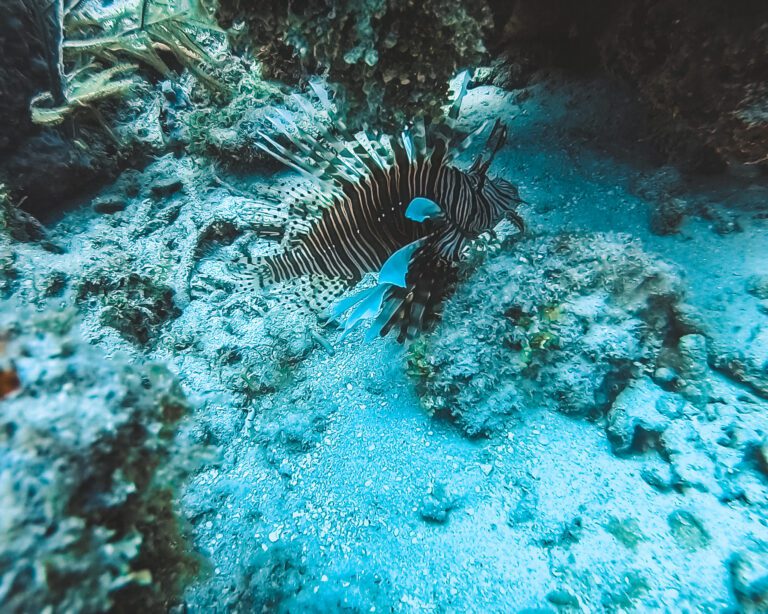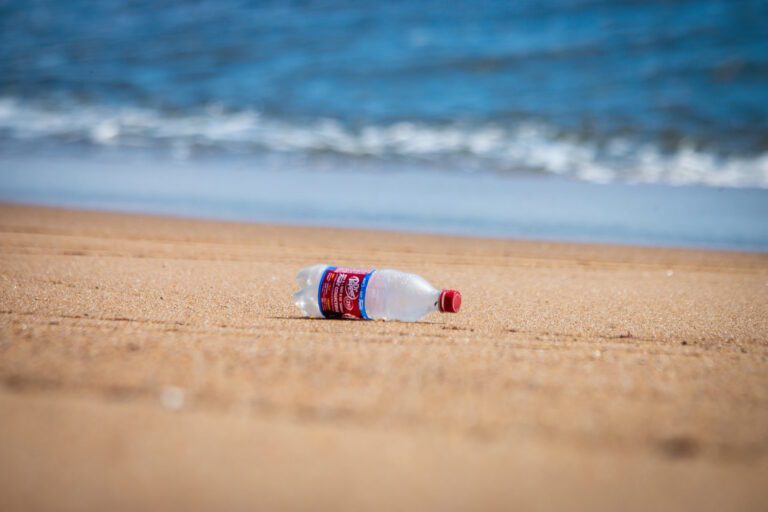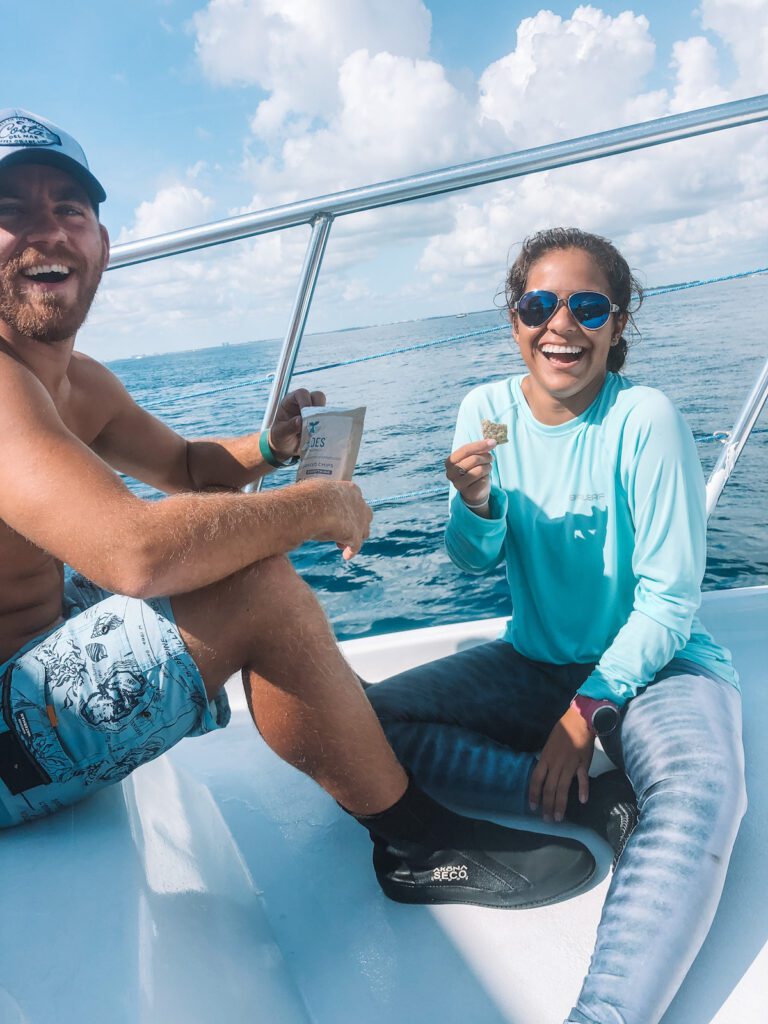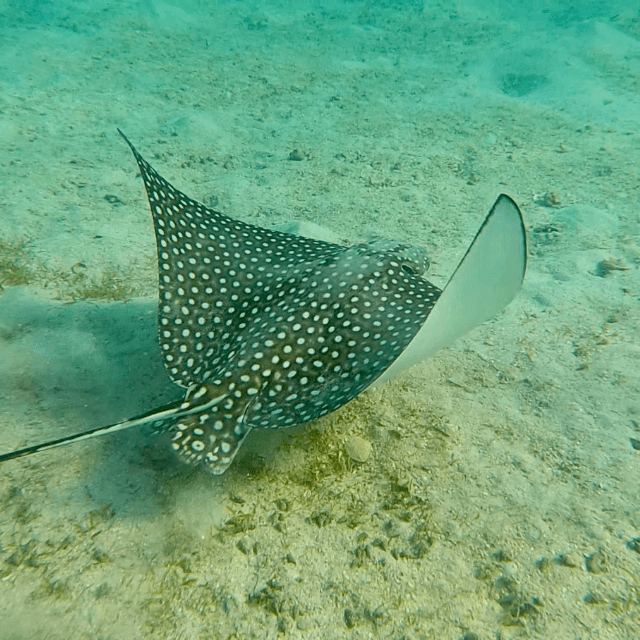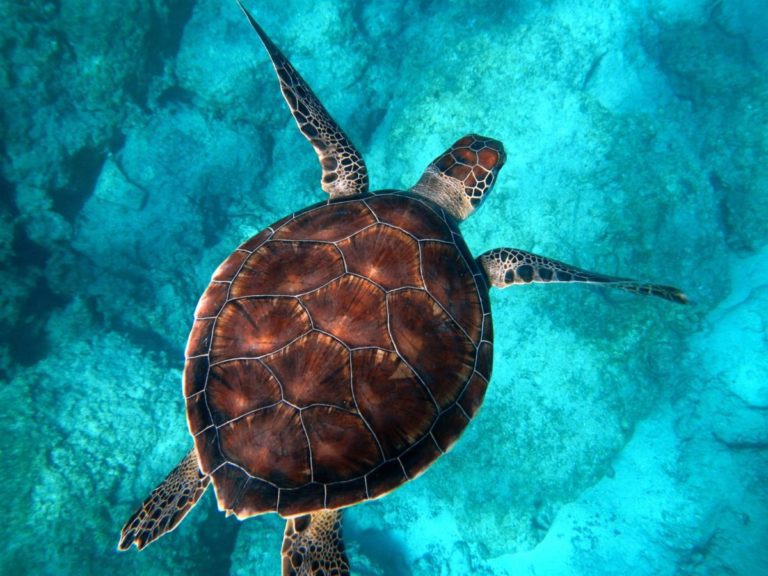8 Reasons You Should Start Lionfish Hunting
Lionfish hunting: our favorite underwater activity while scuba diving. There’s a few reasons why we love to do it – and they’re all for a good cause. Here’s why you should start hunting lionfish on your next diving adventure!
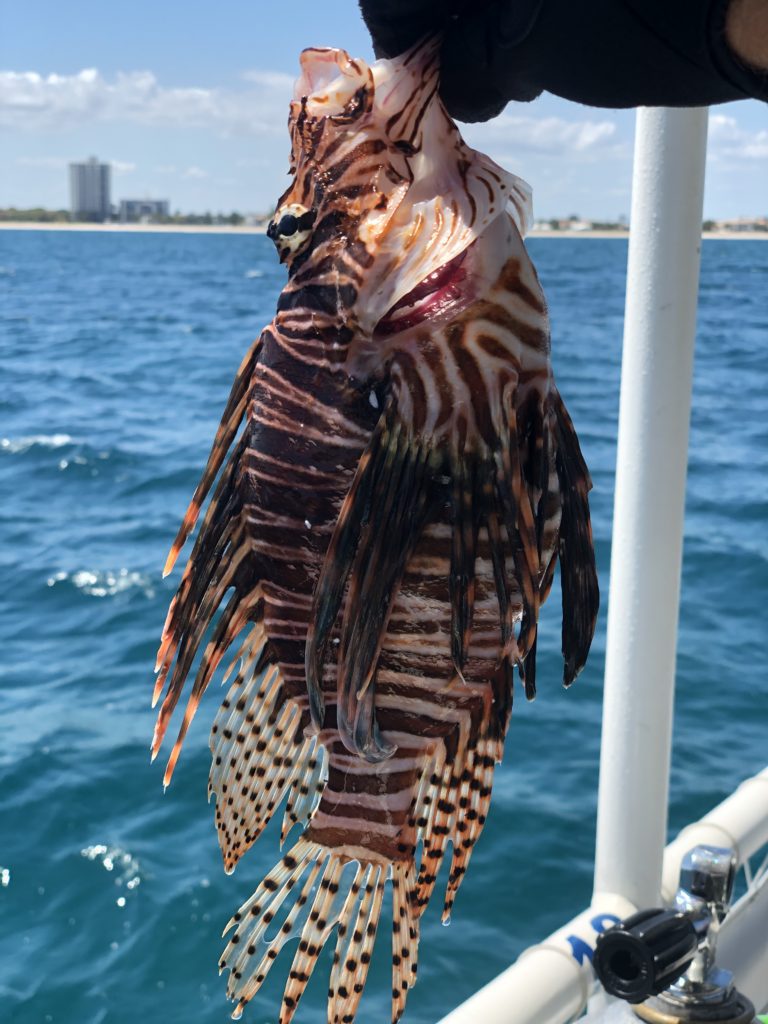
Lionfish are an invasive species laying siege to the waters of the Western Atlantic, Caribbean, and Gulf of Mexico. The only way to remove them are through scuba diving! Below we’ll explain the reasons why you should start lionfish hunting on your next ocean adventure!
The Reasons You Should Hunt Lionfish
To put it simply, lionfish are incredibly harmful to the environment. This claim essentially lays as the basis for why lionfish need to be hunted in the first place.
As for why YOU should get involved, I hope we provide a compelling argument:
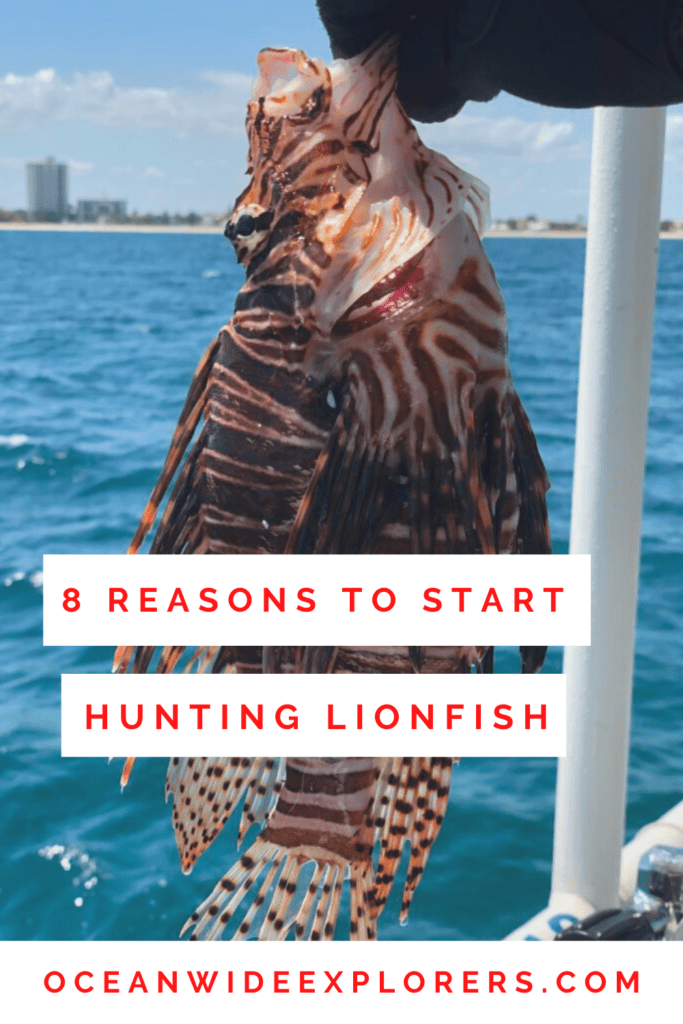
1. Humans are the only way to control lionfish populations.
Likely introduced to the Western Atlantic by humans, it is now ironically up to humans to remedy the situation!
With no natural predators, lionfish have nothing controlling their populations – except for you! In other words, we quite literally need to hunt lionfish to control the devastation they’re causing to natural ecosystems!
The most efficient way to remove the invasive species is scuba diving with a pole spear. Get started on the road to becoming the predator with some hunting gear, a guide to hunting, and tips to increase your catch!
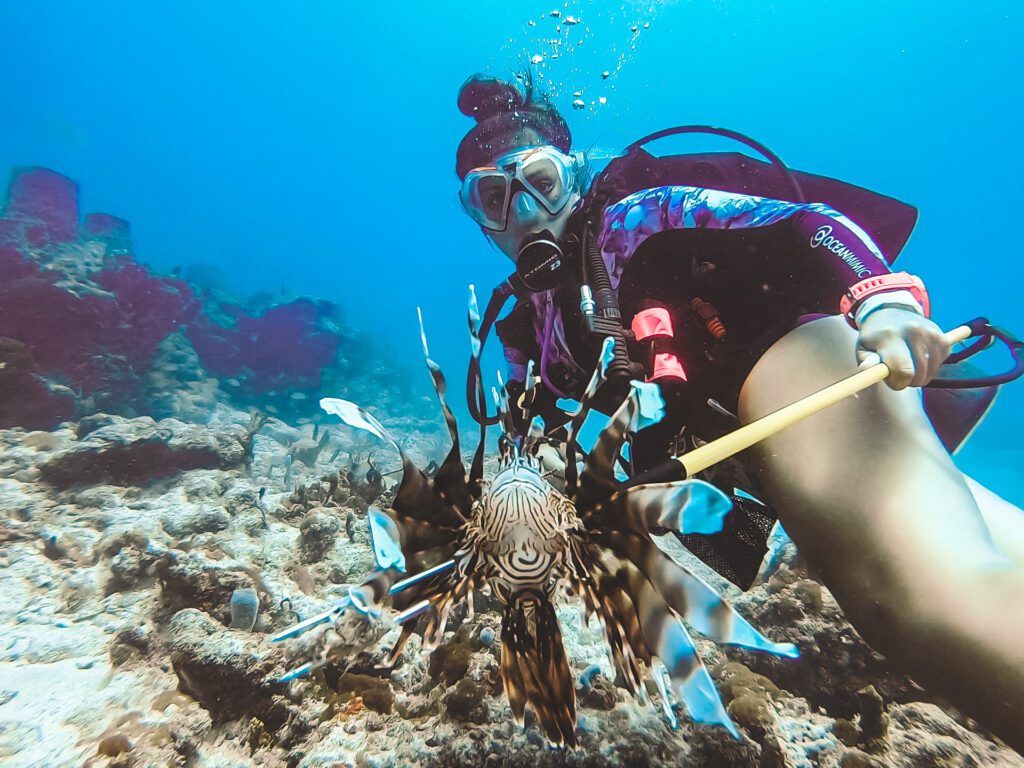
2. Lionfish hunting is budget friendly!
The good news? Compared to other spearfishing tools, lionfish hunting gear is relatively inexpensive. And once you own the necessary tools, you’ll be able to hunt for cheap throughout your scuba diving career!
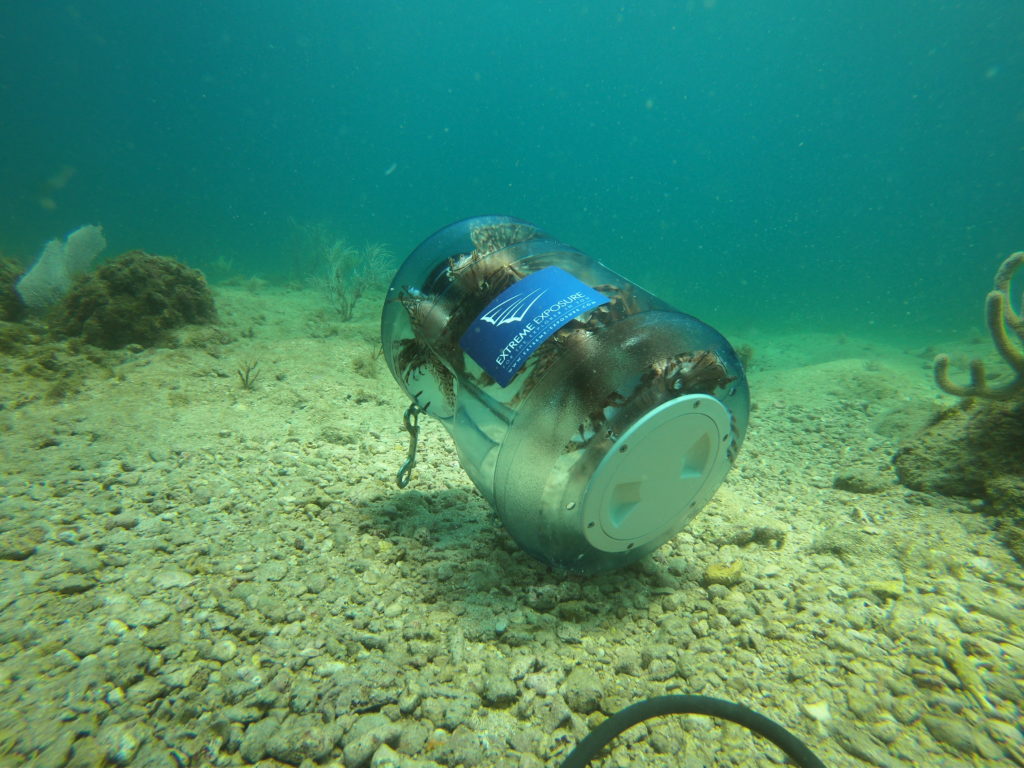
3. Hunting lionfish gives your dive a purpose.
If I must be honest, after the beginning stages of my diving career I started getting bored. I mean, it’s human nature to have a goal in mind in a given task, right? Hence, I needed a purpose to my diving.
Hunting lionfish gave those dives a purpose – and it could do the same for you. In fact, removing lionfish is one of the most important things you could do to protect our coral reefs in the Western Atlantic!
4. Lionfish hunting challenges your abilities as a diver.
To piggyback off my previous point, lionfish hunting is not only an eco-friendly adventure, it also challenges you as a diver! In a good way, of course.
If you feel like your skills have exceeded the limits of recreational diving, hunting lionfish may be the next step in your scuba diving career!
To be a proficient lionfish hunter, your dive skills need to be adequately refined to step up to the challenge; proper buoyancy, safe weapon practices, and careful fish handling are vital – all while maintaining safe scuba skills. Not such an easy task when you think about it!
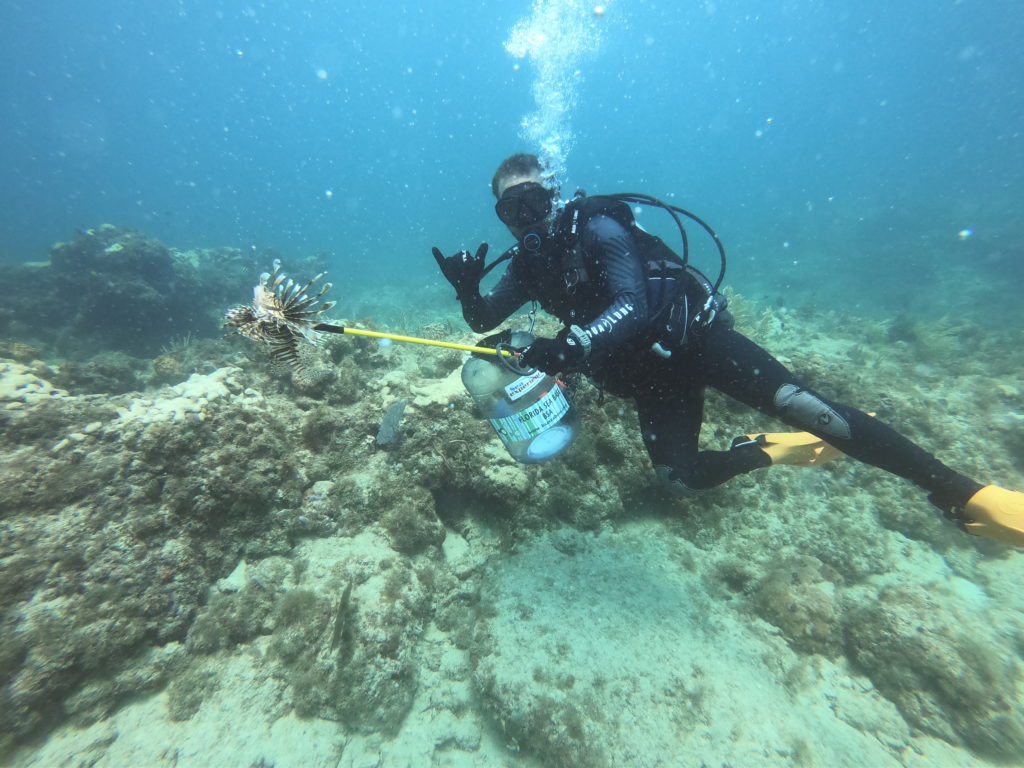
5. You can eat the lionfish you catch! And they’re absolutely delicious!
If you didn’t know, now you do: you can eat lionfish! And they’re absolutely delicious too!
Did someone say, “white, flaky, and mild fish flavor”? Lionfish taste like some of the most sought after fish on the market. Ceviche, fish tacos, or basic fillets are just a few ways to enjoy your catch!
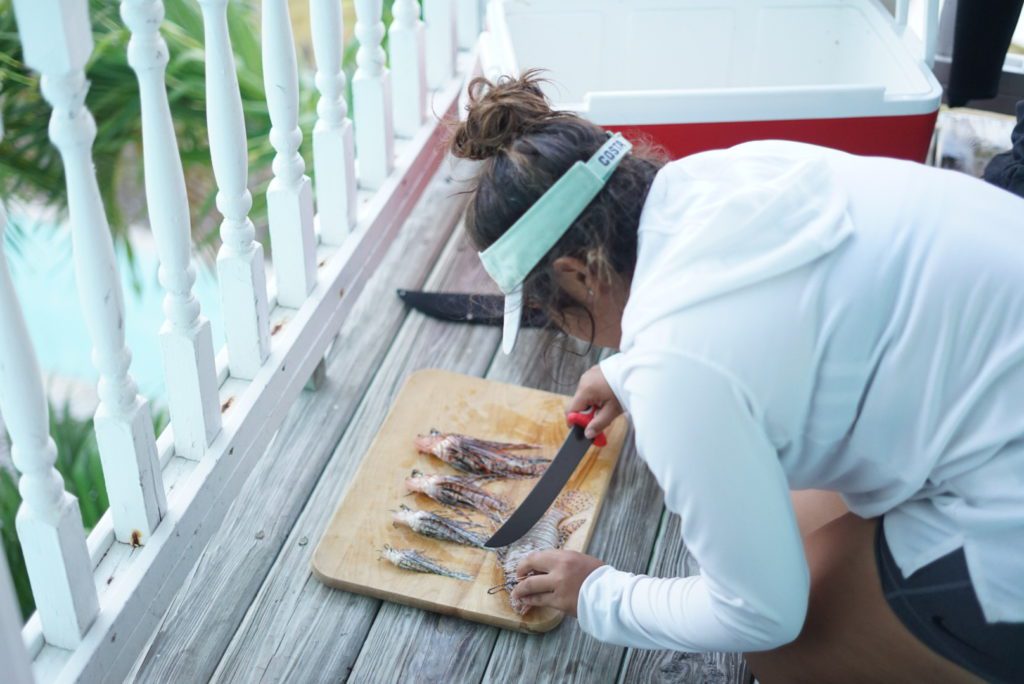
6. Lionfish are the most sustainable fish you can eat.
VERY simply put, sustainable seafood has to deal with how the fish is caught (or farmed) and how that affects the environment at large. It’s a complicated, but important, topic that we are going to discuss in a future blog post.
Ultimately, if we eat unsustainable seafood, we are supporting fishing practices that may have detrimental impacts on delicate ocean ecosystems. What does this have to do with lionfish?
Unlike other fish, the more lionfish you eat, the better it is for the environment! Literally making lionfish the most sustainable fish you can eat!
For more, Seafood Watch has a great tool to find out if the seafood you’re eating is sustainable for your region! (lionfish will always be sustainable in the Western Atlantic and Caribbean)
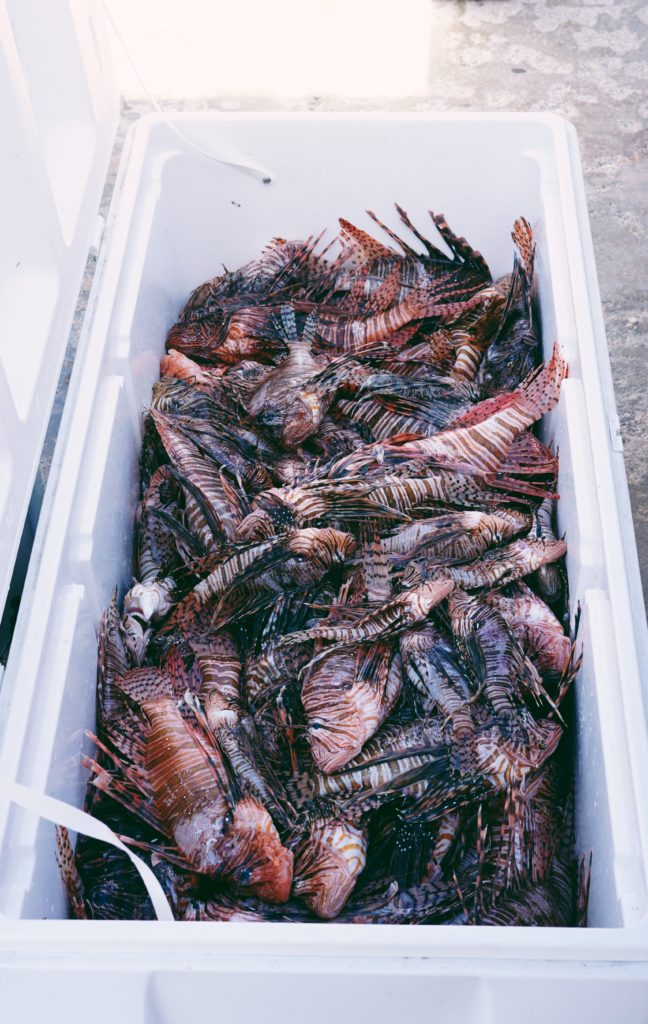
7. Hunting your own food reduces environmental impact
Buying meat in the store? Although delicious, oftentimes the environmental impact is huge. Consider:
- Plastic packaging
- Farm production and carbon emissions
- Transport cost and environmental impact
Hunting your own food takes out the middle man and eliminates these negative environmental impacts!
8. Hunting your own food (like lionfish) and sharing with others is a rewarding experience.
If you’ve never hunted your own food, the feeling alone of providing for your friends and family is like none other. Lionfish are the perfect way to hunt your own food in an environmentally friendly way that can be shared with so many others!
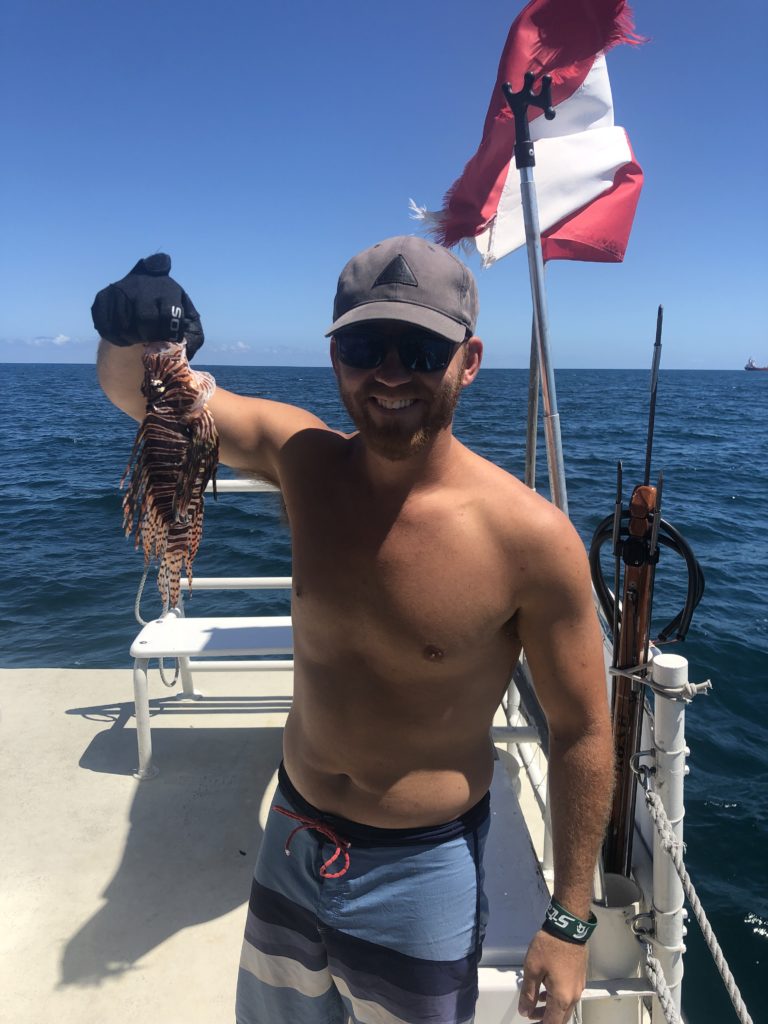
Final Thoughts: Why You Should Start Lionfish Hunting
Lionfish are reeking havoc on our ocean ecosystems in the Western Atlantic and the only hope to save the coral reefs are for you to start hunting! Hunting lionfish is a great way to give your dive purpose, challenge yourself, eat sustainably, and provide your own food!
Enjoy this Post? Pin it!

Read More About Hunting Lionfish
We hope you enjoyed our post on the reasons you should start hunting lionfish. Hopefully you’ll find it useful on your next adventure! Here are a few more ocean-loving articles we think you should read next:
- Complete Guide to Hunting Lionfish
- The Gear You Need to Hunt Lionfish
- 11 Tips to Catch More Lionfish
- 18 Facts You Should Know About Lionfish
Have you tried hunting lionfish before? Have any questions about getting started? Leave a comment below!

